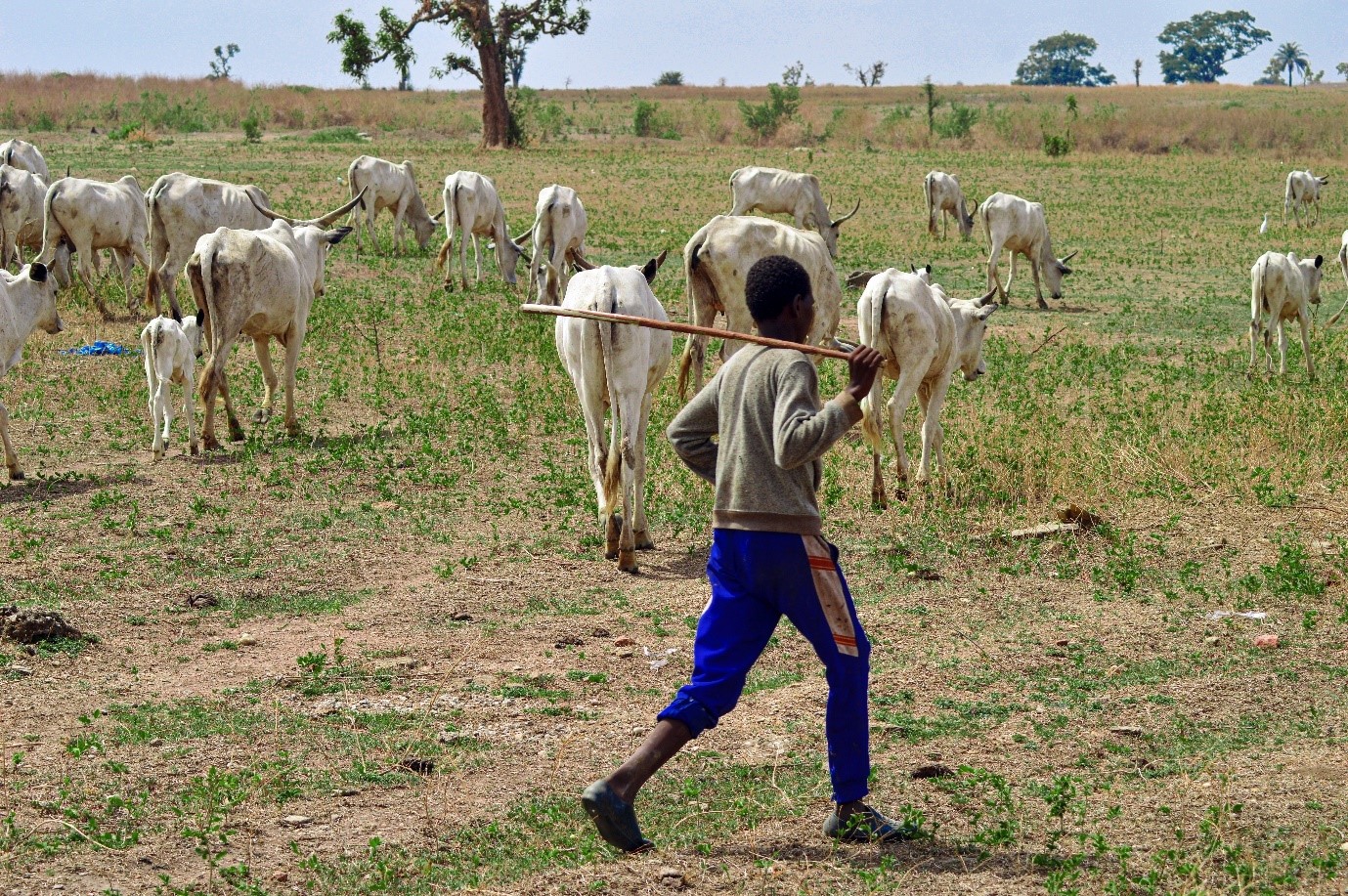Can Increased Contact and Dialogue Reduce Conflict Between Farmers and Herders in Nigeria?

Researchers are evaluating the impact of dialogue and health workshops on reducing conflict between herders and farmers in the Middle Belt of Nigeria.
In Nigeria, desertification in the north has forced herders south to the Middle Belt, where much of the country’s fertile land exists. This has led to disputes with farmers over crop damage, water pollution, and livestock theft, even spilling into regular open conflict. These herder-farmer conflicts displace or kill thousands of people yearly and are increasing in frequency.[1] Moreover, they are often perceived as religiously motivated because herders are predominantly Muslim while a majority of farmers are Christian. Evidence suggests that certain forms of contact or dialogue can improve dispute resolution, increase trust, and dismantle stereotypes, but little causal evidence exists on potential mechanisms and conflict outcomes.
Researchers are partnering with Search for Common Ground and Daniel Meshak Consulting to evaluate the impact of inter-dialogue and health workshops on reducing conflict between herders and farmers in Plateau, Benue, and Nasarawa states in the Middle Belt. Each inter-dialogue or health workshop consists of a separate meeting with the farmer and herder villages and then a joint meeting with both villages. Inter-dialogue workshops have explicit discussions about tensions, key challenges, and agreements to avoid future conflicts while health workshops do not.
A total of 288 communities have been randomly divided in equally sized groups to participate in either inter-dialogue workshops, health workshops, or a comparison group. Researchers will measure outcomes such as the incidence of conflict 9 months after each inter-dialogue or health workshop is held. In addition, researchers will conduct bi-weekly surveys via smartphones with certain herders and farmers from each village to alleviate potential recall problems that arise in traditional surveys, to collect more detailed information on disputes and violent events, and to collect data even when enumerators cannot access certain areas.
Results will be available later in 2023.
Sources
1. International Crisis Group, “Herders against Farmers: Nigeria’s Expanding Deadly Conflict,” International Crisis Group, September 19, 2017, https://www.crisisgroup.org/africa/west-africa/nigeria/252-herders-against-farmers-nigerias-expanding-deadly-conflict













